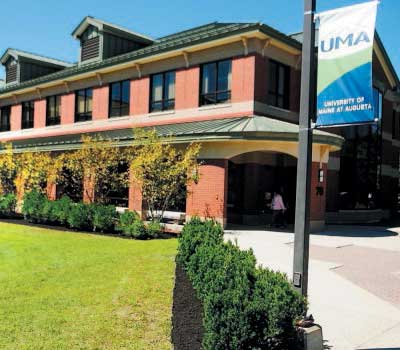AUGUSTA — The veterinary technology program at the University of Maine at Augusta will become a four-year bachelor’s degree program, university officials announced Thursday.
The university planned to eliminate the associate degree veterinary technology program after the students enrolled through this spring graduated as part of its shift toward offering more bachelor’s degrees and because the program had been losing more than $200,000 a year, the third most of any program.
The university announced it planned to phase it out last March, along with its plan to cut $2.7 million out of this year’s budget.
“Our initial decision to phase out the vet tech program was a painful one we felt we had to make in these very difficult budget times for the University of Maine System,” interim President Glenn Cummings said in a release Thursday announcing the changes to the program.
The program takes three years because there are clinical and laboratory courses that require a low student-to-faculty ratio, said Brenda McAleer, dean of the College of Professional Studies. The additional year’s worth of courses will allow students to focus in specific areas, such as small business or biology, and take classes the university already offers, she said.
McAleer said the hope is that expanding the program will make it self-sustaining and allow the university to continue providing veterinary technicians to the state. When the university announced it would cut the program, veterinarians around the area told the university they needed it, McAleer said.
The program, the only nationally accredited veterinary technology program, is at UMA’s Bangor campus and typically graduates 30 students each year, McAleer said.
The associate degree program will continue enrolling students through the fall 2015 semester, she said. Since graduating its first students in 2001, the program has graduated around 230 students, McAleer said.
To help the university make the transition, the Bank of Maine agreed to give a $25,000 matching grant over the next two years if the university can raise another $25,000 from the community, McAleer said.
The university is sending out mailings to veterinary professionals in Maine asking for them to help the bank’s grant, she said.
Cummings said in the release that the money is needed because the program has been running a significant deficit. If the grant is matched, the university will fund the remaining shortfall, he said.
John W. Everets, chairman of the Bank of Maine, said in the release that the bank is pleased to team with UMA to promote advanced education in the veterinarian industry.
“With this commitment, we hope these extraordinary students can advance their degree and go on to make a considerable impact in their professions and their communities in which we live and work,” Everets added.
Send questions/comments to the editors.


